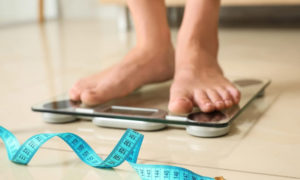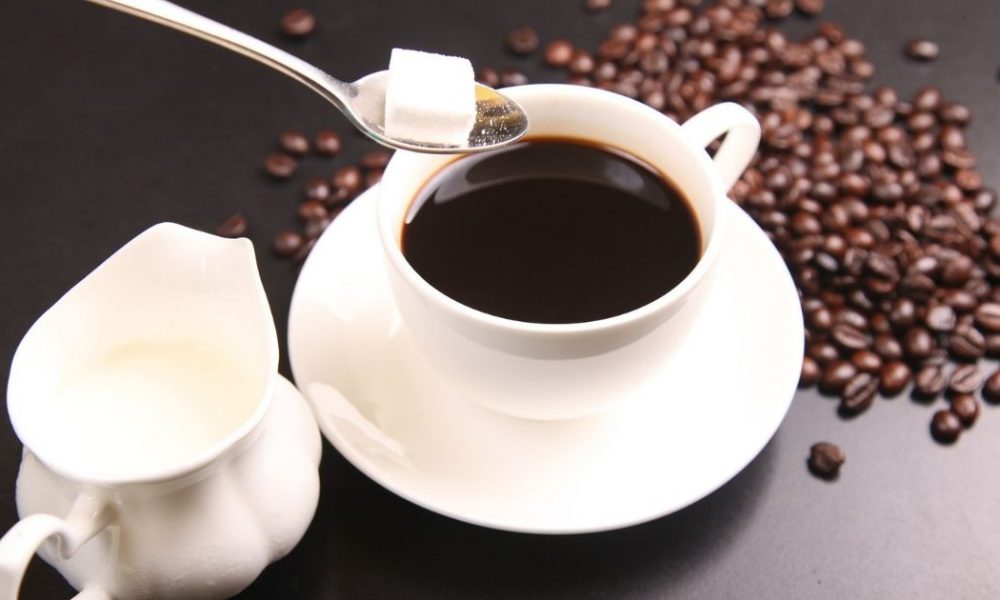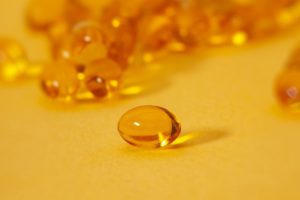
Understanding Daily Scale Fluctuations
The scale is a dick huh? Well, that’s what you assume because you’re hyperemotional about it, so perhaps you’re the dick here. Didn’t think I’d turn the tables like that so early huh?

When you drink coffee, things just feels right. Each drop resurrects your sleepy soul as it engulfs your tongue.
And although, you love coffee and caffeine like your own child, you probably don’t know the crucial facts about it like how it works, what it does, how much to drink, and the myths surrounding it.
Allow me to enlighten you my friend.
Caffeine is found in small doses in many of plants, but nobody really cares about that because the average person gets a majority of their caffeine from coffee (1). Tea and soft drinks are a somewhat close second, but let’s be real, those are lame alternatives.
Soft drinks are for children and drinking tea just makes you look soft.
But anyways, here’s how caffeine works regardless of where it comes from.
As you’re awake, a chemical in your brain called adenosine begins to connect with its receptors. As this happens, you will get sleepier while the day drags on.
This absolutely sucks, but thankfully, what caffeine does is block adenosine from connecting with its receptor thus preventing you from feeling sleepy (2). By toying with your brain chemistry a bit, caffeine makes you feel more alert, focused, and improves your mood and memory (9,10).
Caffeine is ergogenic meaning it improves workout performance. A systematic review shows it improves strength and power (3). This is great for building muscle which we all know makes your body look smoking hot.
Other research shows it also improves aerobic and muscular endurance if you’re into cardiovascular exercise (4,8). This can occur even if you don’t respond to caffeine’s mental alerting effects (37,38).
In addition, caffeine doesn’t discriminate and impacts both genders equally (41).
Caffeine has also been shown from another review to reduce how tired you feel during exercise and possibly reduce muscle soreness (5). For optimal ergogenic effects, it’s recommended to take caffeine about an hour before exercise. In fact, the average pre-workout or energy drink is mostly just caffeine with overpriced marketing (40).
On another note, caffeine has also been shown to burn fat (6,29). Now, before you start chugging a river of coffee, know that this effect is pretty modest and limited. 300 mg of caffeine will only burn about an extra 79 calories per day (7). That hardly makes up for the absurd amount of sugar and cream the average person puts in their coffee. Furthermore, caffeine is not as appetite suppressing as many people think (35,36).
Still, all in all if you want to boost exercise performance, supplementing with caffeine in some form is ideal and minimizing the calories in your coffee is best for fat loss.
Yes, you read that right. Despite many coffee haters claiming coffee is bad for you, it’s actually the opposite.
An umbrella review looking at over 100 meta-analysis showed coffee is deeply good for you and makes you live longer measured by dozens of outcomes (2,23). Many of these outcomes are linked only to coffee apart from caffeine meaning you can reap the various health benefits by drinking decaf without the potential drawbacks of caffeine which we’ll talk about later.
Although, some research finds moderate caffeinated coffee consumption is linked to lower all cause mortality (46).
For now, just know that coffee drinkers tend to have better gut health and a lower risk of death, various cancers, brain disease, heart disease, depression, and even metabolic diseases like type 2 diabetes (39). Coffee also increases glycogen recovery in endurance athletes (48).
Moreover, researchers speculate coffee may be viewed as a vegetable due to having many similar health pathways (39).
However, it seems that coffee is conditionally healthy. In controlled studies, overweight type 2 diabetics don’t see any health improvements with coffee even alongside moderate fat loss (43). So the healthy can benefit from coffee, but not the unhealthy. Interesting.
While drinking coffee does make it seem like you pee and, in many cases, poop sooner, it doesn’t dehydrate your body when ingested within reasonable amounts (11). The slight diuretic effect is canceled out by the amount of water actually in coffee.
Simply put, coffee dehydration is a pretty fat myth that really needs to die.
Furthermore, studies show as long as you’re well hydrated or exercise as part of your lifestyle, coffee and caffeine will impact hydration even less (12,13).
So drink up my friends. After all, coffee is still 99% water.
As awesome as coffee is, it has been shown to decrease sleep quality and quantity when consumed before bed likely because of the increased stress hormones and stimulation (14,35). Research shows this varies between 4-11 hours before bed depending on the person.
A good rule of thumb is to take your last sip of caffeine at least 6-8 hours before you plan on sleeping. Some people can get away with burning off all the caffeine faster, but when in doubt, it’s best to limit caffeine as the night draws near.
Caffeine is also commonly used during waking hours to compensate for sleep deprivation. Unfortunately, research shows this doesn’t work well. A 2017 study showed caffeine cannot counteract multiple days of sleep deprivation and took longer to recover people’s baseline level of alertness (15).
In fact, deep sleep is delayed even when caffeine is consumed during the day in habitual users (47).
Long story short, caffeine is not a replacement for quality sleep and in order to have quality sleep, caffeine should be restricted many hours before bed. Seasons of complete disuse is suggested as well.
The totality of evidence shows coffee itself to have a stronger relationship with health benefits than health risks, so it’s generally very safe drink (16). That being said, caffeine as a stimulant does increase blood pressure which means if you have high blood pressure, you probably shouldn’t be drinking much caffeinated coffee at all (5).
Same goes for people with anxiety as 150 mg can make you significantly more anxious (32).
For the rest of us who are considered relatively healthy individuals, here’s what science recommends our daily caffeine limits be (17,18).
For the average person looking to see how many cups they can get away with, it’s hard to give an exact answer because caffeine content varies so much between coffee sources.
The average cup has about 100 mg, but many coffee shops add more for obvious reasons.
The average 8 oz Starbucks coffee contains 50% more, about 150 mg (19).
And this is just talking in terms of basic coffee. Specialty coffees may have even more and vary unpredictably.
One study looked at the caffeine levels of the same specialty coffee purchased at the same store in the same week found a 16-ounce cup ranged between 259-564mg of caffeine (20).
So how many cups is considered reasonable would depend on what kind of coffee you get and even then, the amount per cup can vary greatly with commercial coffee.
For basic coffee, this might be 2-4 eight oz cups a day.
For fancier coffee drinks, this might only be 1-2 eight oz cups a day.
If you’re just after the benefits of caffeine and want to be accurate with dosages, caffeine pills are a good alternative, but let’s be real, nobody wants to take some lame pill.
This is the part where you pray I tell you about how there’s research showing caffeine tolerance is a myth so you can chug coffee daily. Unfortunately, caffeine tolerance is real especially when it comes to it’s ergogenic benefits (21).
This applies mostly to lifters who want to maximize performance as the research shows the boost you get from caffeine progressively drops with consecutive use especially in habitual users (27).
So it’s best to cycle your intake by using caffeine on days where you really need it like before a particularly hard workout or a competition. The more days you take away from caffeine, the more potent it’s effect will be when you reintroduce it (42).
If you’re thinking you just can’t live a few days without caffeinated coffee, this next study will be eye-opening.
A 2017 study gave trained cyclists either caffeine or placebo and compared it to a control session (22,24). They also asked the participants if they thought they got actual caffeine or a placebo before testing.
Surely caffeine boosted performance, but what’s interesting is people who got caffeine and predicted it correctly performed even better.
People who didn’t get caffeine and predicted it correctly actually did worse than the controlled session.
This study basically shows us that our mind is more dependent on caffeine than the body actually is. Just knowing you have caffeine will further enhance it’s effect and knowing you don’t have it can negatively affect you beyond baseline.
Another study in fighters who didn’t know if they got caffeine found no punching performance benefits (28).
In another study, 87% of particpants couldn’t predict if they got caffeine (5 cups worth) or placebo (29). We also plenty of research showing the effects of caffeine is mostly just psychological (30,44).
One study found caffeine can boost motivation and focus, but didn’t actually boost performance (31). Along those same lines, caffeine may only improve performance in the morning but not the evening (45).
Long story short, caffeine is not as physiologically vital as you think and to maximize on caffeine’s benefits, it’s best to not take daily. You’ll be ok, I promise.
Because you can build a tolerance to caffeine, chronically high doses is a bad idea. At just 3mg/kg/day, complete tolerance is reached in under 2.5 weeks (33). And with higher consumption, the worse the withdrawals will be (34). Many people think they can continue to take caffeine, but at some point, it’s effects are no longer beneficial even if you think they are.
You’ll eventually get to a point where caffeine stimulation becomes your new normal creating an illusion of benefit when in reality, you’re dependant on it to avoid feeling worse.
Fortunately, science gives us some good news. Resetting your caffeine tolerance should take only 2-9 days of abstinence depending on current intake and individual genetics (25).
During this abstinence period, you’ll likely experience a number of withdrawal symptoms. Interestingly enough, this study showed objectively your brain performance isn’t hindered even though subjective feelings report otherwise (26).
Simply put, when withdrawing from caffeine, your actual productivity won’t suffer even though you’ll feel like it is due to the nasty withdrawal symptoms.
And there you have it. That’s pretty much everything you need to know about coffee and caffeine.
Here’s a cute little recap for you:
Now it’s time to celebrate all this awesome knowledge by drinking a fresh cup of coffee! Have at it my friend, unless it’s almost bedtime. In that case, probably just stick to water.
Grgic, Jozo, et al. “CYP1A2 Genotype and Acute Effects of Caffeine on Resistance Exercise, Jumping, and Sprinting Performance.” Journal of the International Society of Sports Nutrition, BioMed Central, 15 Apr. 2020, www.ncbi.nlm.nih.gov/pmc/articles/PMC7161272/.
Grgic, Jozo, et al. “ADOR2A C Allele Carriers Exhibit Ergogenic Responses to Caffeine Supplementation.” Nutrients, MDPI, 11 Mar. 2020, www.ncbi.nlm.nih.gov/pmc/articles/PMC7146260/.
Kolb, Hubert, et al. “Health Effects of Coffee: Mechanism Unraveled?” MDPI, Multidisciplinary Digital Publishing Institute, 20 June 2020, www.mdpi.com/2072-6643/12/6/1842.
Quinlivan, Alannah, et al. “The Effects of Red Bull Energy Drink Compared With Caffeine on Cycling Time-Trial Performance.” Human Kinetics, Human Kinetics, Inc., 1 Oct. 2015, journals.humankinetics.com/view/journals/ijspp/10/7/article-p897.xml.
Waller, Georgina, et al. “A Low Caffeine Dose Improves Maximal Strength, but Not Relative Muscular Endurance in Either Heavier-or Lighter-Loads, or Perceptions of Effort or Discomfort at Task Failure in Females.” PeerJ, PeerJ Inc., 14 May 2020, www.ncbi.nlm.nih.gov/pmc/articles/PMC7231502/.
Beaumont R;Cordery P;Funnell M;Mears S;James L;Watson P; “Chronic Ingestion of a Low Dose of Caffeine Induces Tolerance to the Performance Benefits of Caffeine.” Journal of Sports Sciences, U.S. National Library of Medicine, pubmed.ncbi.nlm.nih.gov/27762662/.
Alperet DJ;Rebello SA;Khoo EY;Tay Z;Seah SS;Tai BC;Tai ES;Emady-Azar S;Chou CJ;Darimont C;van Dam RM; “The Effect of Coffee Consumption on Insulin Sensitivity and Other Biological Risk Factors for Type 2 Diabetes: a Randomized Placebo-Controlled Trial.” The American Journal of Clinical Nutrition, U.S. National Library of Medicine, pubmed.ncbi.nlm.nih.gov/31891374/.
Giráldez-Costas, Verónica, et al. “Pre-Exercise Caffeine Intake Enhances Bench Press Strength Training Adaptations.” Frontiers, Frontiers, 4 Jan. 2021, www.frontiersin.org/articles/10.3389/fnut.2021.622564/full.
Stojanovic, Emilija. “Acute Caffeine Supplementation Improves Jumping, Sprinting, and Change-of-Direction Performance in Basketball Players When Ingested in the Morning but Not Evening.” Taylor & Francis, www.tandfonline.com/doi/full/10.1080/17461391.2021.1874059.
Weibel, Janine, et al. “Regular Caffeine Intake Delays REM Sleep Promotion and Attenuates Sleep Quality in Healthy Men.” Journal of Biological Rhythms, SAGE Publications, Aug. 2021, https://www.ncbi.nlm.nih.gov/pmc/articles/PMC8276335/.
Loureiro, Laís Monteiro Rodrigues, et al. “Coffee Increases Post-Exercise Muscle Glycogen Recovery in Endurance Athletes: A Randomized Clinical Trial.” Nutrients, MDPI, 23 Sept. 2021, https://www.ncbi.nlm.nih.gov/pmc/articles/PMC8537367/.
Sign up for AwesomeFitnessScience Weekly. You’ll get juicy insider secrets, updates, and stories.

The scale is a dick huh? Well, that’s what you assume because you’re hyperemotional about it, so perhaps you’re the dick here. Didn’t think I’d turn the tables like that so early huh?

The Lifter’s Guide to Warming Up Warming up is like saving for retirement. We all know it’s important, but we don’t exactly know why or

It’s quite common for people to drop hundreds of dollars every month on trendy supplements in search of being stronger, healthier, and more athletic specimen with a raging sex drive.